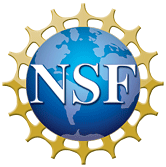Integrated Earth Systems (IES) Revised Solicitation (Full proposal deadline: November 14, 2016)
September 15, 2017
A revised version of the solicitation for Integrated Earth Systems (IES) (NSF 16-589) has been issued. The new solicitation clarifies that the program is open to a diverse array of innovative, interdisciplinary research projects in the Earth Sciences that transcend the boundaries of the regular core programs: “The IES program will support research in Earth systems from the core through the critical zone that includes all or part of the terrestrial, lithospheric and deeper Earth subsystems over the entire range of temporal and spatial scales. Appropriate topics may include (but are not limited to) lithospheric and mantle impacts on continental systems; terrestrial or surficial Earth systems that involve physical, chemical, and biotic dimensions; linkages among tectonics, climate, and landscape evolution; the coupling of the Earth's climate, depositional and biotic systems; global cycles that include core and mantle processes; or other systems of similar scope.” The updated solicitation is more welcoming to projects that do not have a strong numerical modeling component. If you have a research idea that you think may be suitable for IES, please contact either Leonard Johnson, Richard Yuretich, Dennis Geist for further advice or discussion.
This material is available primarily for archival purposes. Telephone numbers or other contact information may be out of date. Originally published Oct. 3, 2016.
Sign up for EAR updates by sending an email to listserv@listserv.nsf.gov. The text of the email must be in this format: subscribe [list name] [subscriber's name]. For example: subscribe EARTH Neysa Call.
The U.S. National Science Foundation propels the nation forward by advancing fundamental research in all fields of science and engineering. NSF supports research and people by providing facilities, instruments and funding to support their ingenuity and sustain the U.S. as a global leader in research and innovation. With a fiscal year 2023 budget of $9.5 billion, NSF funds reach all 50 states through grants to nearly 2,000 colleges, universities and institutions. Each year, NSF receives more than 40,000 competitive proposals and makes about 11,000 new awards. Those awards include support for cooperative research with industry, Arctic and Antarctic research and operations, and U.S. participation in international scientific efforts.
Connect with us online
NSF website: nsf.gov
NSF News: nsf.gov/news
For News Media: nsf.gov/news/newsroom
Statistics: nsf.gov/statistics/
Awards database: nsf.gov/awardsearch/
Follow us on social
Twitter: twitter.com/NSF
Facebook: facebook.com/US.NSF
Instagram: instagram.com/nsfgov



